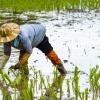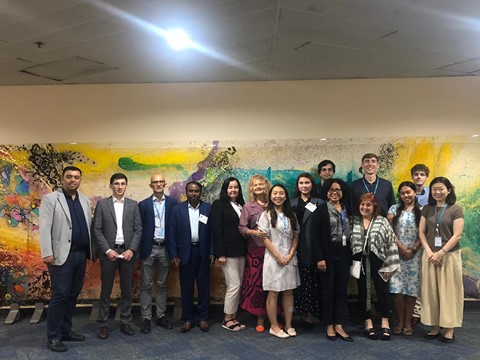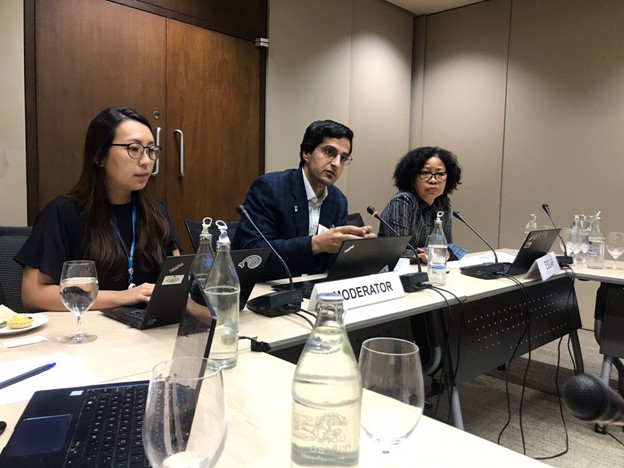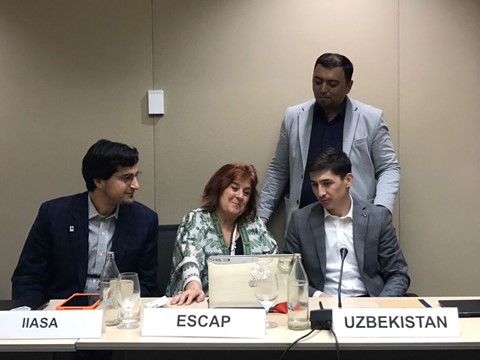
IIASA researcher Ali Kharrazi contributed to the Expert Group Meeting on Food System Risk Assessment at the United Nations Economic and Social Commission for Asia and the Pacific (UNESCAP) and the World Food Program (WFP).
Bangkok, 18-19 September 2023
Ali Kharrazi, a senior research scholar at the Advancing Systems Analysis program (ASA/SYRR), was a panelist and moderator during the recent Expert Group Meeting on "Strengthening Food System Risk Assessment: INFER and Its Application." This meeting of experts conducted on September 18 and 19, 2023, both in Bangkok and online, convened experts specializing in food system monitoring, analysis, policymaking, and risk assessment. Hosted by UNESCAP and the WFP Regional Bureau for Asia and the Pacific, the event generated wide-ranging discussion on the future of food system risk assessment.
The focus of the event was the comprehensive assessment framework and index, INFER (INsights on Food SystEm Risks), co-developed by Ali Kharrazi as part of the core team members at UNESCAP and WFP. INFER provides critical insights into multidimensional risks influencing three key food system outcomes: human health and nutrition, ecosystem health and sustainability, and shared prosperity. It enables stakeholders to monitor risk trends and their drivers across nations and through time, supporting effective food system monitoring and building resilience.
As this framework garners interest from various governments, some of which were represented at the meeting, active participation is crucial to ensure the sustainability and continued development of this effort. Ideally, this would also secure a more pronounced role for IIASA in this collaborative endeavor among multiple agencies.
Ali Kharrazi facilitated in-depth discussions on vital aspects of food system risk assessment, focusing on data validation, language accessibility, policy relevance, and capacity building. He also ensured a productive interchange of ideas and insights among participants. The objectives were to share insights, tools, and methodologies related to food system risk assessment and to solicit constructive feedback on the INFER framework.
Participants included experts from various United Nations agencies, including UNEP, UNDP, UNFCCC, UNESCAP, WFP, UNITAR, UNEP-WCMC, and as well as professionals specializing in food system monitoring and analysis. Their collective expertise and perspectives contributed to a rich and informative discussion, ultimately advancing the field of food system risk assessment.
IIASA's significant contribution and ongoing commitment to the development of the INFER model have accentuated the importance of advancing food system risk assessment for a more resilient and sustainable future.
For more information on the INFER model and its applications, interested parties can visit: https://unescap.org/projects/infer/
News

27 June 2024
What can social media tell us about public views on climate change?

26 June 2024
BRICS perspectives on innovations in digital competition policy and practices

26 June 2024



